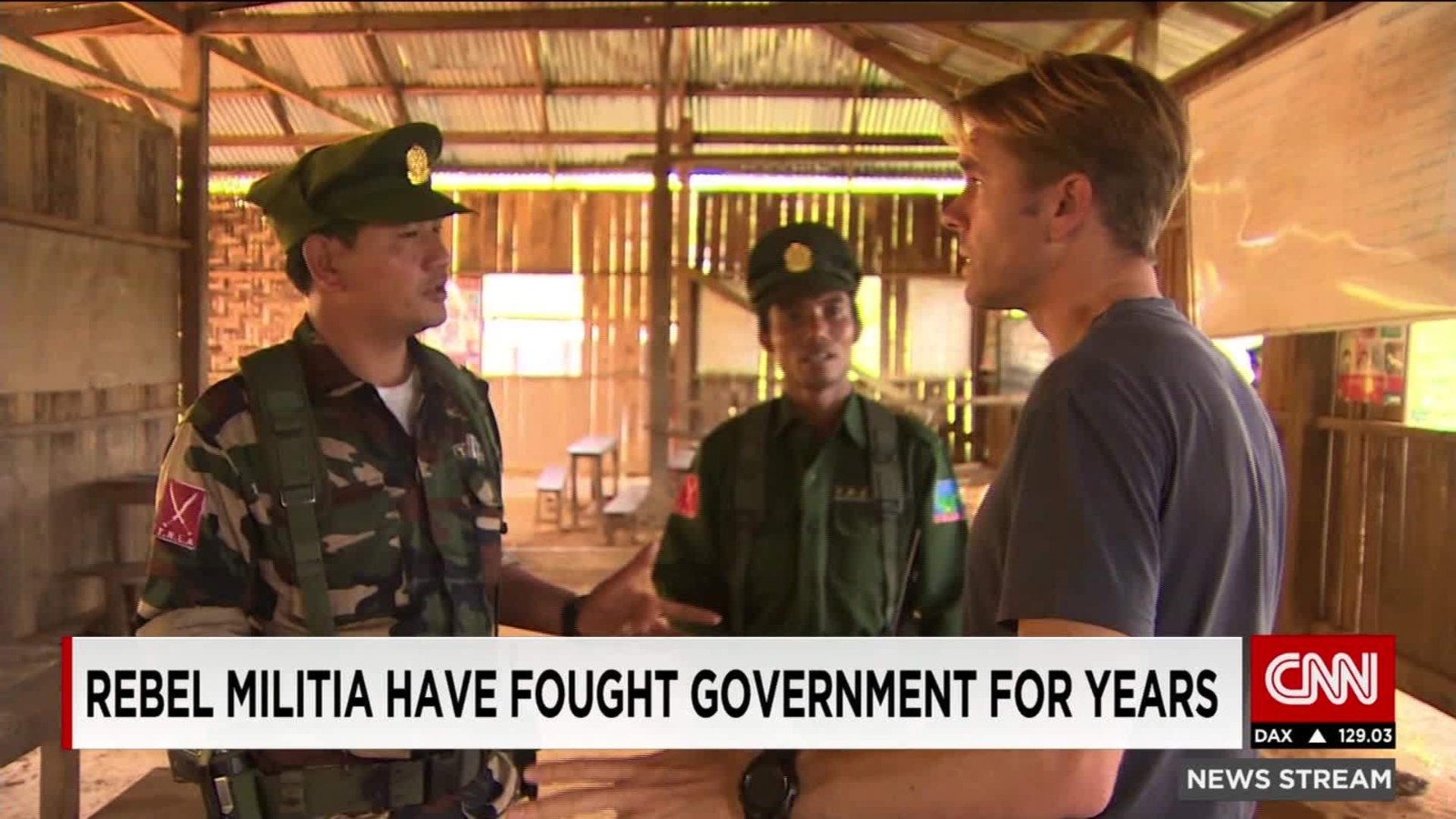Double Standards? Examining UK And Australian Sanctions On Myanmar's Military

Table of Contents
The Nature of UK and Australian Sanctions Against the Myanmar Military
Both the UK and Australia have imposed a range of Myanmar military sanctions targeting individuals and entities deemed responsible for the coup and subsequent human rights abuses. These sanctions aim to cripple the military's financial resources and limit its access to international support.
Types of Sanctions Imposed:
Both countries have implemented a mix of targeted sanctions, including:
- Travel bans: Prohibiting sanctioned individuals from entering their territories.
- Asset freezes: Freezing any assets held within their jurisdictions belonging to designated individuals and entities.
- Arms embargoes: Restricting the sale and transfer of weapons and military equipment.
Examples of sanctioned individuals and entities include senior military leaders, members of the State Administration Council (SAC), and businesses linked to the military.
The legal basis for these sanctions rests on respective national legislation. The UK uses the Sanctions and Anti-Money Laundering Act 2018, while Australia relies on its autonomous sanctions regimes, which have broad powers to target individuals and entities involved in serious human rights abuses.
A key difference lies in the scope. While both target high-ranking military officials, the breadth of sanctions and the number of designated individuals may vary, leading to questions of consistency and the potential for loopholes. This disparity forms a crucial element of the double standards debate surrounding UK sanctions Myanmar and Australia sanctions Myanmar.
Effectiveness of Sanctions: Impact and Limitations
The effectiveness of Myanmar military sanctions remains a complex and contentious issue. While sanctions aim to exert economic and political pressure, their impact is often indirect and difficult to measure definitively.
Economic Impact:
While some evidence suggests a negative economic impact on Myanmar, attributing specific effects solely to sanctions is challenging. Other factors, such as pre-existing economic instability and the global pandemic, complicate the assessment.
- Reduced foreign investment: Sanctions may discourage foreign investment, impacting overall economic growth.
- Decreased trade: Restrictions on trade could limit access to essential goods and services.
- Increased inflation: Sanctions may contribute to rising prices and economic hardship.
However, it is difficult to isolate the effects of sanctions from other economic and political factors at play in Myanmar.
Humanitarian Impact:
The humanitarian impact of sanctions is a critical concern. While sanctions aim to target the military, their unintended consequences can disproportionately affect the civilian population.
- Reduced access to humanitarian aid: Sanctions could inadvertently restrict the flow of humanitarian aid needed to assist vulnerable populations.
- Increased poverty and food insecurity: Economic hardship caused by sanctions may exacerbate poverty and food insecurity.
- Limited access to essential medicines: Sanctions may impact the supply of essential medicines and healthcare services.
A balanced assessment requires careful consideration of both the potential negative and positive impacts on human rights and humanitarian aid.
Circumvention Strategies:
The Myanmar military has demonstrated a capacity to circumvent sanctions through various strategies, including:
- Utilizing shadow companies and networks: Sanctioned entities may engage in complex financial transactions to hide their assets and activities.
- Exploiting existing trade routes: The military might leverage existing trade routes to bypass sanctions.
- Seeking support from non-sanctioning countries: The military may seek support from countries that have not imposed sanctions.
The ability of the military to circumvent sanctions undermines their effectiveness and highlights the need for more comprehensive and coordinated international action.
Criticisms and Comparisons with Other International Responses
The UK and Australian approaches to Myanmar military sanctions have faced significant criticism. These criticisms often center on concerns about the sanctions' effectiveness, their inconsistent application, and unintended consequences.
Critiques of UK and Australian Approaches:
- Insufficiently comprehensive sanctions: Critics argue that the sanctions are not sufficiently comprehensive, leaving loopholes that the military can exploit.
- Inconsistent application: The application of sanctions may lack consistency, creating a perception of bias and undermining their legitimacy.
- Unintended consequences: Critics raise concerns about the potential negative humanitarian consequences of sanctions.
International Comparisons:
Comparing the UK and Australia's sanctions regimes with those imposed by other nations, such as the EU, US, and Canada, reveals significant variations in scope and severity. This lack of uniformity raises questions of double standards in the international response.
- Differences in target lists: The specific individuals and entities targeted by different countries vary.
- Variations in sanction types: Countries may impose different types of sanctions, impacting the overall pressure on the military.
- Level of coordination: The level of coordination between different countries in implementing sanctions varies significantly.
Conclusion: Double Standards and the Path Forward: Re-evaluating Sanctions on Myanmar's Military
This analysis reveals that while the UK and Australia have imposed sanctions on the Myanmar military junta in response to human rights violations and the coup, questions about their effectiveness and consistency remain. Whether these disparities represent true double standards requires careful consideration of the complex interplay between political will, economic realities, and the unintended consequences of sanctions.
The potential for sanctions circumvention, alongside criticisms regarding their comprehensiveness and humanitarian impact, necessitates a re-evaluation of current strategies. Future efforts should focus on strengthening international coordination, closing loopholes, and prioritizing the protection of civilian populations. Further research is needed to thoroughly analyze the long-term economic and social impact of these Myanmar military sanctions. A more comprehensive and coordinated approach, coupled with consistent implementation, is essential to effectively address human rights abuses and promote a return to democracy in Myanmar.
To learn more about the ongoing crisis in Myanmar and to advocate for stronger, more consistent international action, visit [link to a relevant human rights organization or advocacy group]. Your engagement is crucial in ending the impunity enjoyed by the military and holding them accountable for their actions. Let's work together to strengthen the effectiveness of Myanmar military sanctions and promote a just and peaceful resolution to the conflict.

Featured Posts
-
 Spomenite Na Dzherard Btlr Ot Blgariya
May 13, 2025
Spomenite Na Dzherard Btlr Ot Blgariya
May 13, 2025 -
 S And P 500 Jumps Over 3 Us China Trade Truce Fuels Rally
May 13, 2025
S And P 500 Jumps Over 3 Us China Trade Truce Fuels Rally
May 13, 2025 -
 Sobolenko I Skandal V Madride Kommentarii I Posledstviya
May 13, 2025
Sobolenko I Skandal V Madride Kommentarii I Posledstviya
May 13, 2025 -
 Kentucky Derby Winner Sanctioned For Excessive Whipping
May 13, 2025
Kentucky Derby Winner Sanctioned For Excessive Whipping
May 13, 2025 -
 Religioznaya Deyatelnost Rpts V Myanme Novoe Razreshenie
May 13, 2025
Religioznaya Deyatelnost Rpts V Myanme Novoe Razreshenie
May 13, 2025
